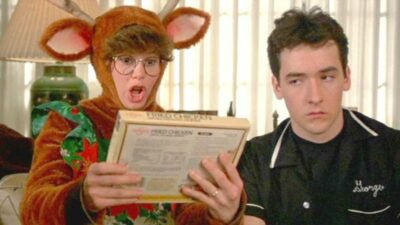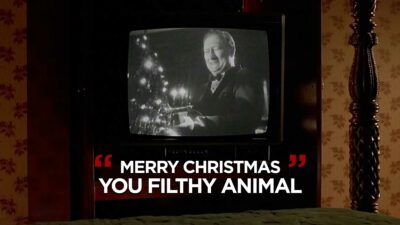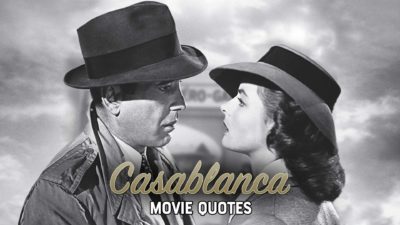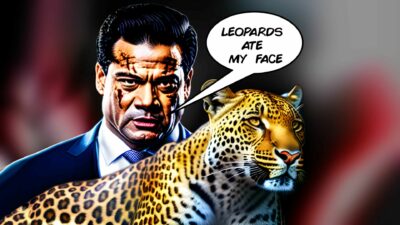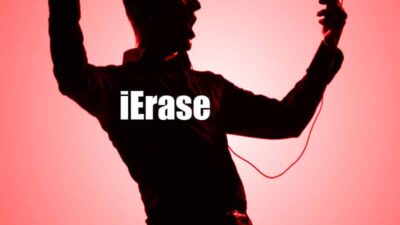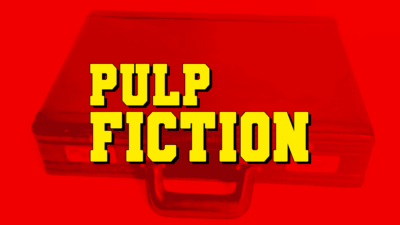One morning in 1978 a disgruntled San Francisco politician, Dan White, climbed through a City Hall window, assassinated Mayor George Moscone, then shot and killed an openly gay adversary on the city’s Board of Supervisors named Harvey Milk.
It was a fractured moment in a troubled time and place. Memories of it soon will be roiling the Oscar race.
On Oct. 28 Focus Features expects to introduce its film “Milk,” directed by Gus Van Sant with Sean Penn in the title role, at a gala in San Francisco hosted by local luminaries, at least one of whom — Senator Dianne Feinstein, then the president of the board of supervisors — was just steps away when Mr. Milk and Mayor Moscone were shot. The movie will begin playing in some theaters on Nov. 26, just ahead of the 30th anniversary of the killings on Nov. 27, then gain wider release as the awards season gets under way.
Already the film is drawing attention as an early contender in the coming Oscar race. Following early screenings, for instance, Hollywood insiders and others have been startled by Mr. Penn’s picture-perfect rendering of Mr. Milk, a politician who was at once gawky, ambitious and unforgettable to those whose lives he touched. “Sean’s portrayal of Harvey is so beautifully right,” Cleve Jones, a Milk friend who is played in the film by Emile Hirsch, said in a phone interview.
Yet the movie presents no small challenge for Focus, the specialty division owned by NBC Universal that two years ago pushed its gay-theme “Brokeback Mountain” to the cusp of Oscar glory with eight nominations, only to see “Crash” win best picture.
This time around, studio marketers are wrestling with an inherently political film at a time when audiences have been wary of them. Only last weekend the combined star power of Leonardo DiCaprio and Russell Crowe was not enough to save an issues-oriented thriller, “Body of Lies,” which opened poorly for Warner Brothers.
Focus and Mr. Van Sant will have to connect millions of filmgoers with a world that could seem weirdly disconnected, even back then. Only nine days before the murders, for example, the Rev. Jim Jones, whose People’s Temple had become influential in San Francisco politics, had orchestrated the death of more than 900 followers and others at Jonestown in Guyana.
The publishing heiress Patricia Hearst, meanwhile, was tucked in a Bay Area prison, the consequence of her engaging in a bank robbery for the Symbionese Liberation Army, which had kidnapped her.
“You’re giving me an acid flashback to all the chatter before ‘Brokeback,’ ” said James Schamus, chief executive of Focus, responding to a question about the universal message in Mr. Milk’s struggles. Those could turn on matters as weighty as gay rights, or as slight as an ordinance requiring dog owners to clean up after their pets.
“Harvey said, ‘This is a quest for everybody’s rights,’ ” Mr. Schamus said. “That was his genius.”
If the ranch hands of “Brokeback” were subdued, nothing about Mr. Milk was. He loudly insisted that gay people should be out of the closet, at a time when public homosexuality was largely confined to San Francisco and a few like-minded enclaves.
Mr. Milk’s grandest political battle was his successful fight against a California initiative that would have banned gay teachers from the state’s public schools. His roughest was the backroom scrap in which he helped to block Mr. White’s reappointment to a supervisor’s post from which he had resigned two weeks earlier. Mayor Moscone was planning to discuss that decision publicly on the day of the murders.
(Upon Mr. Moscone’s death Ms. Feinstein, as president of the board of supervisors, became mayor, propelling her political rise. Mr. White would later use a “Twinkie defense,” in which his junk-food diet was cited as representative of his diminished capacity, to avoid conviction for first-degree murder; his conviction on the lesser counts of manslaughter sparked the so-called White Night riots in the city.)
According to the film’s producers and others, some of the political intricacies were whittled from Dustin Lance Black’s script. Though the People’s Temple had supported Mr. Milk, for instance, Mr. Jones was largely cut. “It would take so much time to explain to people who Jim Jones was,” said Dan Jinks, who with his business partner Bruce Cohen are among the movie’s producers.
What remained, according to Mr. Jinks, was the story of a “regular guy” — before politics, Mr. Milk was best known as co-owner of a camera store in the Castro district of San Francisco — who decided to make a difference.
The documentary “The Times of Harvey Milk,” directed by Rob Epstein, won the Oscar for best feature documentary in 1985. “Execution of Justice,” shown on the Showtime cable network in 1999, was a drama based on the murders.
Mr. Van Sant’s film came together suddenly last year after he and other filmmakers, Bryan Singer and Oliver Stone among them, had struggled for two decades with various attempts to find a feature film in Mr. Milk’s life.
Mr. Black, himself a director, bypassed those earlier efforts, many of them based on Randy Shilts’s book “The Mayor of Castro Street,” and began researching an original script with the help of those who knew Mr. Milk. In early 2007 one of those friends, Mr. Jones, showed the script to Mr. Van Sant, whom he had known for years.
Mr. Van Sant, speaking by telephone, said he signed on partly because Mr. Black had managed to confine the story to the brief and heady period that preceded Mr. Milk’s death. “He made choices,” Mr. Van Sant said.
Mr. Penn joined up, as did Mr. Jinks and Mr. Cohen. They next connected with Groundswell Productions and its chief executive, Michael London, who in turn joined Focus in financing a film that cost a relatively modest $20 million or so to make.
Yet “Milk” acquired a kind of epic quality as much of San Francisco became involved. “It took on almost Tolstoyan proportions,” Mr. Schamus said of the movie’s familial sprawl.
A number of Mr. Milk’s aging associates are not only portrayed in the film, they also have bit parts. Danny Nicoletta, who worked in Mr. Milk’s camera shop, for instance, is played by Lucas Grabeel of “High School Musical” and, in turn, plays Carl Carlson, an aide to Mr. Milk who was one of the last to see him alive. In addition Mr. Nicoletta advised Mr. Black on the script and worked as the film’s still photographer.
In one more twist this month’s premiere, a benefit for various gay and lesbian youth groups, will open with a screening at the Castro Theater, near the site of Mr. Milk’s old camera shop, and will end with dinner and dancing at City Hall, where he died.
The moral in all of it, Mr. Van Sant said, is ultimately political. “It’s an illustration of pretty extreme grass-roots politics,” he said of his film’s message, “that you can do it.”
But others are hoping that he has found the beating heart in Mr. Milk.
“He wasn’t Mother Teresa,” Tom Ammiano, a San Francisco supervisor who appears in the movie, said of Mr. Milk. “He just connected with people, one by one.”

[Understand: NYTimes]

Frank Wilson is a retired teacher with over 30 years of combined experience in the education, small business technology, and real estate business. He now blogs as a hobby and spends most days tinkering with old computers. Wilson is passionate about tech, enjoys fishing, and loves drinking beer.








